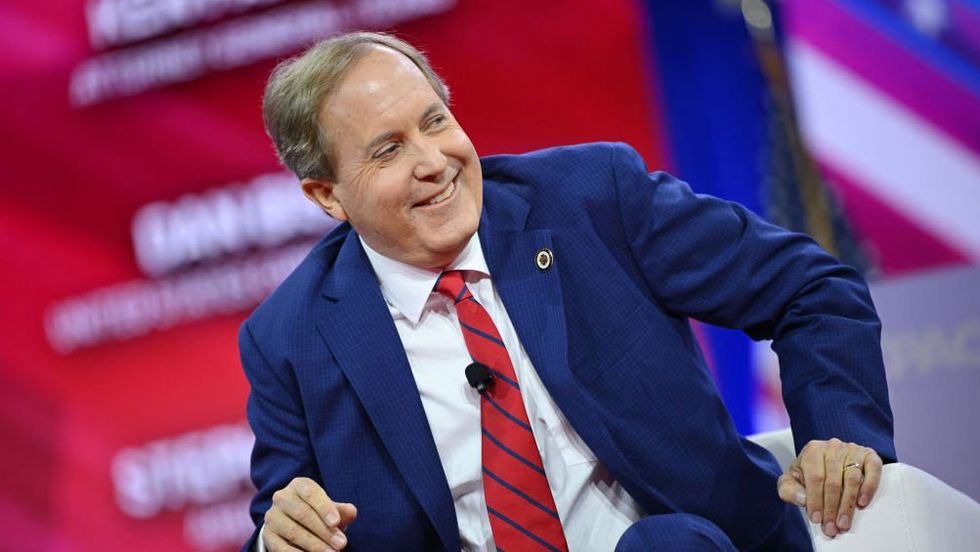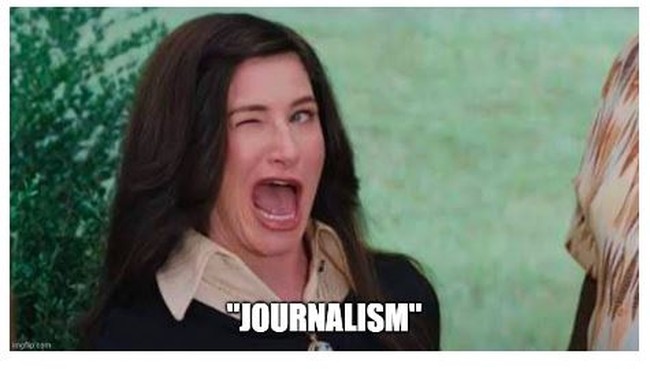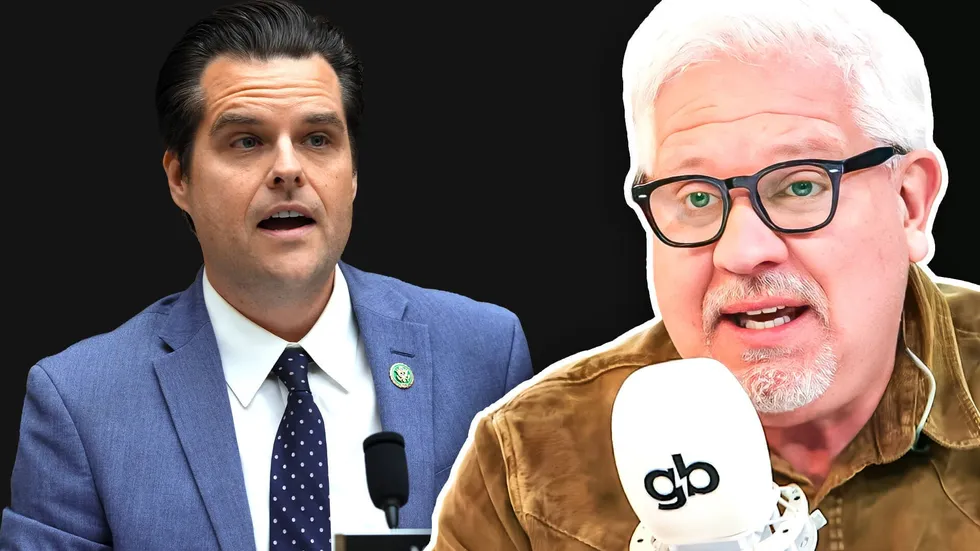Texas AG Ken Paxton’s legal victory raises major questions about nine-year-long case: ‘Pain has always been the point’

Texas Attorney General Ken Paxton (R) is not going to trial after all.
In 2015, a grand jury indicted Paxton on three felony criminal charges: two counts of securities fraud and one count of failing to register with state securities regulators. Prosecutors claimed that Paxton solicited two acquaintances to buy hundreds of thousands of dollars worth of stock in a technology startup, but failed to disclose that he would be compensated for the deal.
Years of procedural and pretrial maneuvering had delayed the case, but trial was finally scheduled to begin on April 15.
Then the case came to an abrupt end last Tuesday when prosecutors agreed to drop the charges in a deferred prosecution agreement. Whereas Paxton had been facing potentially decades in prison if convicted — 99 years, in fact, according to the Austin American-Statesman — he will now serve 100 hours of community service, pay restitution, and take continuing legal education classes.
The deal raises a glaring question: Why is there an extreme difference between the potential outcome of the case and the actual outcome?
Looking back, this outcome was predictable.
In 2016, the Security and Exchange Commission filed a civil lawsuit against Paxton related to the same case. But a federal judge twice dismissed the SEC’s complaint.
“Paxton had no plausible legal duty to disclose his compensation arrangement with investors,” ruled U.S. District Judge Amos Mazzant in 2017.
That ruling was a harbinger for things to come, a sign the criminal case against Paxton was weak — at best.
“If you follow that legal principle, the same facts could not possibility support a criminal prosecution,” Mitch Little, one of Paxton’s defense attorneys, told Blaze News.
“If you’re a prosecutor, and you’ve read from a federal judge, you’ve just had your legs cut out from under you,” Little explained. “If you’re a prosecutor and you see that order, you should be saying, “Well, we’re done.'”
Seven years later, special prosecutors Brian Wice and Jed Silverman were preparing for trial. Initially, they planned to focus their case around the third-degree felony charge of failing to register with state securities regulators, the Houston Chronicle reported.
But they ran into a massive problem.
On March 2, the prosecutors re-interviewed a key witness, Frederick Mowery, a former friend and business associate of Paxton’s. In that interview, they learned that Mowery planned to take the blame for not having registered Paxton as a securities adviser. Even worse, Mowery had already testified as much to the Texas State Securities Board a decade earlier, and Paxton paid a $1,000 civil fine for the violation in 2014.
Silverman, according to the Houston Chronicle, said the interview with Mowery extracted a “level of detail that would make it considerably harder for a jury to believe” that Paxton broke the law.
It was yet another sign of a losing case. But after the eye-opening interview, prosectors shifted the focus of their case. Now they planned to anchor the case around the allegations of security fraud.
But they ran into another problem: one of the alleged victims has died and the other was not committed to testify against Paxton. Plus, the victims simply wanted to be made financially whole, prosecutors now say.
Moreover, as the prosectors re-interviewed other witnesses, they realized that most of them were hostile to their case, meaning they would have testified in a way that helped Paxton’s defense.
The law was also in Paxton’s corner. Kent Schaffer, a special prosecutor who withdrew from the case last month, told the Houston Chronicle that Texas law isn’t “crystal clear” about what a person soliciting investments should disclose to potential investors. And, at any rate, he said that Paxton was never accused of lying outright. Rather, he was accused of lying by omission.
Realizing they did not have a winnable case, prosecutors finally decided to strike a deal.
Publicly, the prosecutors who worked the case framed the pretrial diversion agreement as a victory. Schaffer, in fact, said it implied that Paxton is guilty.
“It sends a signal to anybody who is paying attention that this guy obviously did what he’s accused of doing or he wouldn’t be entering into that agreement,” he said, the Houston Chronicle reported.
But Little told Blaze News that conclusion is “abject nonsense.”
“[That comment] suggests how much public political pressure Kent and Brian are under for having agreed to the pretrial diversion, which, ultimately, they needed to agree to because they didn’t have what they needed to try this case,” Little said.
“[Schaffer] is just trying to shape a public narrative that’s just simply not supported by the evidentiary record,” he explained.
Importantly, Little said prosecutors have always there wasn’t sufficient evidence against Paxton to charge him, let alone to win at trial.
And despite prosecutors’ attempts to frame why the case ended the way it did — Wice, for example, called it the “perfect storm of everything that could have derailed and delayed the prosecution” — “none of this is a surprise,” Little explained.
If this has been true from the beginning, that begs the question: Why was the case drawn out?
The answer to that question, Little told Blaze News, is because “this prosecution had political value while it was pending” — for Paxton’s Democratic and Republican opponents.
“The value of the case is that it was pending,” he explained. “The pain has always been the point.”
Ultimately, Little told Blaze News this case is a prime example of lawfare in a new age of hyper-partisanship, saying it serves as a warning to others.
“This was a trial run. If we could get in a time machine and go back to 2015: Did we really understand what lawfare was in 2015?” Little said. “There’s precedent for political prosecutions … but the depths to which people are [now] willing to go seems to be deeper and deeper.”
Like Blaze News? Bypass the censors, sign up for our newsletters, and get stories like this direct to your inbox. Sign up here!










